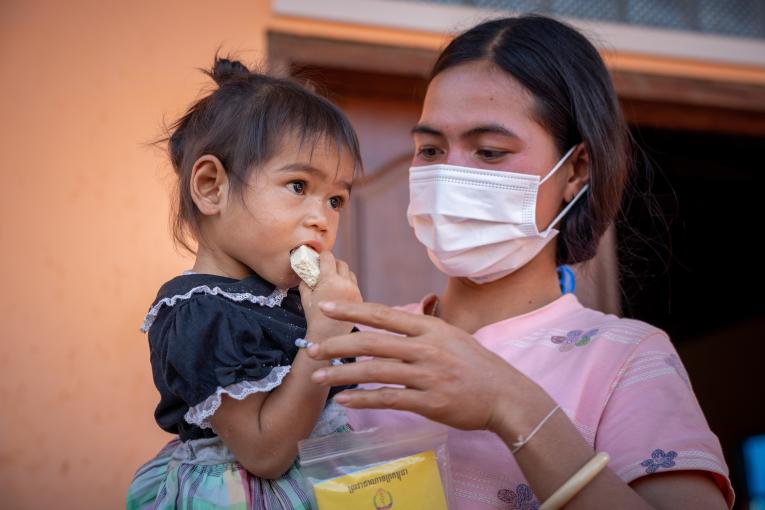 Source: UNICEF Cambodia/Antoine Raab
Source: UNICEF Cambodia/Antoine Raabnutrition
When we talk about nutrition, we don’t just mean how hungry someone is or their basic calorie intake. Instead, we’re referring to whether or not a person has the right nutrients to grow and live a healthy life. Malnutrition can mean either undernutrition – when someone doesn’t have enough healthy food – or overnutrition, otherwise known as overweight or obesity.
Good nutrition is foundational to human development, and is vital for achieving the Sustainable Development Goals (SDGs). When people are well-nourished, they are better able to learn, have stronger immune systems, and better respond to vaccinations, while well-nourished communities are better able to break cycles of poverty and gender inequality.
how we take action
Results UK wins
In the run-up to the 2021 Nutrition for Growth Summit, Results successfully advocated alongside our partners for the UK’s adoption of the ‘OECD-DAC’ nutrition policy marker’ at the programme-design phase. This technical commitment enhances the monitoring and evaluation of nutrition activities, and helps mainstream nutrition interventions across sectors and programmes at the FCDO. Through our parliamentary advocacy, Results also helped secure the UK’s £1.5 billion financial pledge to fighting malnutrition in the period 2022-30.